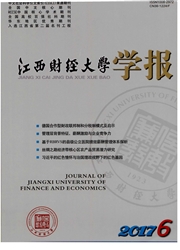

 中文摘要:
中文摘要:
采用中国动态CGE模型,使用编制的2012年细化农业部门社会核算矩阵,模拟农业技术进步对城乡居民绝对、相对收入差距的影响。研究发现,农业技术进步在中期会加剧城乡绝对收入差距,但长期会缩小该差距;在所有模拟期,农业技术进步会缩小城乡相对收入差距;与中性技术进步相比,有偏技术进步减缓城乡收入差距的效果更显著;要素替代弹性通过影响城乡居民的要素报酬配置,决定农业技术进步缓减城乡收入差距的效果。我们的研究结论,可为农业最优技术进步路径的选择提供依据。
 英文摘要:
英文摘要:
By applying China's dynamic CGE model, this paper makes use of agriculture-focused dis- aggregated social accounting matrix of 2012 to simulate the impact of agricultural technical progress on the absolute and relative income gaps between urban and rural residents. The findings show that agricul- tural technical progress will exacerbate absolute income gap between urban and rural residents in the medium term, while narrowing the gap in the long term. In all the simulation periods, agricultural techni- cal progress will narrow the relative income gap between urban and rural residents. Compared with neu- tral technical progress, the effect of the biased technical progress is more significant in reducing the in- come gap. Through influencing the factors reward allocation of both urban and rural residents, the elastic- ity of factor substitution can determine the effects of agricultural technical progress reducing the urban-ru- ral income gap. The conclusion of this study can provide a basis for the related authority to select an optimal path of agricultural technical progress.
 同期刊论文项目
同期刊论文项目
 同项目期刊论文
同项目期刊论文
 期刊信息
期刊信息
